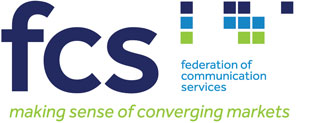Mobile Telephony
Mobile telephony is a vital business tool, enabling company personnel to contribute productively from home, from the car, from different time zones or from distant exhibitions. Mobile technology sits at the centre of communications technology, too: seamless integration, call-forward and caller identity with office-based IT and telephony systems is made possible by sending data over radio waves. At one extreme, business radio; at the other fixed line telephony; at yet another, PC computing power; at another wi-fi broadband connectivity.
FCS policy is to ensure high-quality mobile calling infrastructure is available for all professional communications providers. It is based around five fundamental principles:
Free and competitive markets: Arguing for market conditions which encourage new and competitive players to enter the market, and for wholesale packages which enable specialist comms providers to create innovative business-specific packages to suit their customers’ needs.
Transparency of competition: Challenging the arguments that mobile network operators also need to own their own mast site infrastructure, enabling them to restrict or licence roaming. Seeking solutions which enable communications providers to bundle mobile functionality seamlessly with other communications solutions, and to bill customers on a consistent basis. Ensuring business customers who offer premium-rate numbers do not end up inadvertently subsidising the regulatory costs associated with consumer use of chat lines, gaming services or TV vote lines.
Equivalence of Access: Campaigning for gaining-provider led switching to be the norm across all technologies, bringing the mobile networks into line with copper and fibre number porting conventions.
Industry best practice, where the industry itself sets the appropriate performance/quality levels: Developing the market-leading work undertaken by the mobile networks and recycling companies on end-of-life and waste-to-landfill to create robust practices for the whole industry. Working alongside emergency services communications professionals to sanity-test the use of ‘LTE’ mobile functionality to deliver mission-critical voice at times of widespread mains power failure.
Regulation which recognizes the distinct nature of the business-to-business market place: Insisting that ‘inadvertent roaming’ on to neighbouring countries’ networks on the south coast of England and in border areas of Northern Ireland be addressed by technical means, to ensure business customers are not disadvantaged.
Become a Member
FCS is an all-industry association: Membership is open to any organization which supplies or supports business-grade communications solutions to commercial, public sector or private customers.
